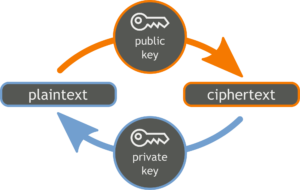
Bitcoin what is it?
Bitcoin is just one of the thousands of Crypto-currencies in existence. Crypto-currencies like Bitcoin use a security algorithm called cryptography to determine the validity of a transaction. Bitcoin was the first crypto-currency created just over ten years ago with the concept to create an “electronic” currency that had limited supply so that it wouldn’t suffer the same inflationary state that many of the worlds traditional currencies suffer from.

Cryptography – Makes transactions secure.
In general Crypto-currencies use a technology called Cryptography uses a combination of electronic keys that are basically very long random numbers that when processed through the crypto-currency software confirm the transition. So, when I send an amount of Bitcoin to another person, within that transaction is a set of unique identifiers (numbers) that confirm that the transaction is legitimate. That is, the Sender is me and the “receiver” is the receiver or the person I intended to send it to.
This “authentication” process is performed by Bitcoin “Miners”, which are independent computers owned by independent persons or companies numbering in the tens of thousands if not millions scattered across the internet. Basically anyone with a PC can become a Miner“. Each “Miner” runs the specific Bitcoin software and is paid in fractions of a Bitcoin to perform the transaction confirmations. Whenever a transaction is performed a tiny bit of Bitcoin is discovered or “mined” providing the Miners with an incentive to perform these transactions.

Blockchain – the future of transactions
In addition, the majority of crypto-currencies leverage a concept called the Blockchain, which is basically an electronic ledger that tracks “All” of the Bitcoin transactions. This ledger is replicated throughout the Bitcoin network so that every participant agrees on its legitimacy. The Blockchain also ensures that there is NO double spending because all holders of the Blockchain get to confirm the legitimacy preventing someone from sending 2 ‘coins’ at once.

Day to Day Use
There are many other facets to a crypto-currency such as Bitcoin, such as: Mining, Wallets, Exchanges, Limited supply, Transaction costs and security that each play its part in the crypto-currency network.
Some countries such as Russia are developing their own form of a blockchain based crypto-currency that will significantly lower the cost per transaction for things like interdepartmental spending. They also have the ability to provide financial services to much of the worlds very poor countries that have limited or zero access to banking services given that all that is required is a mobile phone to perform transactions.
One thing is for sure: crypto-currencies represent the future of money especially in a global economy and will impact everyone whether you own any of the 1000 or so currencies or not.


